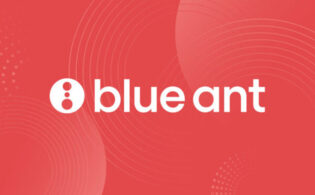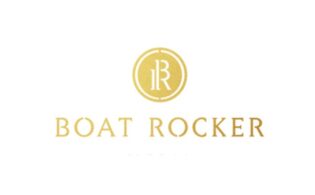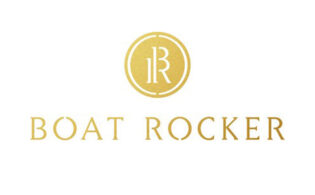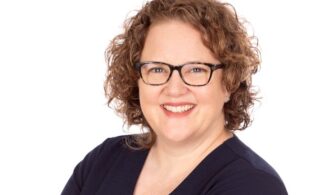In today’s ever more consolidated media landscape, there are generally two paths available to independent producers: stay in your lane as you go it alone, or be subsumed into a global federation. David Fortier, Ivan Schneeberg and John Young opted for a different route entirely—they chose to create a brand-new global entertainment company, Boat Rocker Media.
The foundation was Temple Street Productions, the well-regarded Canadian production outfit founded by Fortier and Schneeberg that made global ripples with shows like the critically acclaimed drama Orphan Black and tween series The Next Step.
“We were a production company and we tried to make as many shows as we could, building from one show to the next,” says Fortier, who today serves as co-executive chairman at Boat Rocker Media alongside Schneeberg. “As the company grew, we realized that we needed to deal with some of the vagaries of production. We had to build an infrastructure and to do that we needed capital. So we took on investment from Fairfax Financial. Boat Rocker is a result of the capital investment and building the company from there.”
ORIGIN STORY
That happened in 2016, but Schneeberg says that Temple Street always wanted to be much more than a Canadian production company, even when “there was nothing—no office, no staff, no shows. We wanted to be a media company based in Canada. We are very proud Canadians; we’re very proud to be building a company here. But we always wanted to make content that traveled outside of Canada. We wanted to use the system that exists here to build great content, but we didn’t want to be making stuff that was only consumable by the Canadian marketplace. Even from that moment of inception, we always aspired to be a global business. We’re continuing down that road. We first started making kids’ TV, then we moved into adult comedy, drama with Being Erica and [format adaptations with] the Canadian version of Next Top Model. Even when we were two, three, four, five, six people, we always made shows in multiple genres. It’s useful to be diversified in terms of the content you make. Now we’re thinking about diversified content that can transform into meaningful brands that can be exploited around the world and hopefully springboard out into other pieces of IP.”
To achieve its global ambitions, Boat Rocker Media has been steadily amassing a portfolio of program rights libraries and production companies. Each fits into one of the company’s four pillars: Studios (led by Schneeberg and Fortier as co-presidents), Rights (helmed by Jon Rutherford), Brands and Ventures.
“With over 600 employees in different areas, we’re constantly looking at how best to align the organization with the goals that we have,” says Young, the CEO of Boat Rocker Media. “For the moment, with Studios, Brands, Rights and Ventures, we feel we have the ability for each of these areas to act on their own, develop content and build revenue streams on their own, but equally, make sure they all work together. We’re creating an integrated system. We can exploit and monetize the intellectual property that we’re creating. The structure certainly allows us to increase the size of our teams and add great content partners, as we have been doing with the acquisitions of late. The combination of these various divisions puts us in the best position we can be in to provide that 360-degree service, if you will, for the content we have and the content we’re creating.”
PIECE BY PIECE
The M&A activity has chugged along at a steady pace since Boat Rocker’s creation in early 2016. On the content-creation side, the company acquired Radical Sheep Productions—which would form the kids’ and family arm of Boat Rocker Studios—and Jam Filled Entertainment, and later made an investment in Insight Productions. Boat Rocker Rights, meanwhile, has been snapping up content libraries, picking up the Mountain Road Productions slate, Peace Point Rights, Proper Television and Proper Rights, and FremantleMedia Kids & Family. There has also been organic growth, including the creation of Crooked Horse Productions as a dedicated factual outfit, and partnerships with Fisher-Price and Mobius.Lab Productions.
On the company’s expansion strategy, Young notes, “First and foremost it starts with finding the right people to be a fit for the culture and the organization we want to be. And [it’s about] the strength of their businesses; the ability of those businesses to continue growing and sustaining revenues. To date, we’ve been very fortunate in partnering with and acquiring companies that have been great fits for our organization and have gone from strength to strength.”
Schneeberg adds, “We look at what we need. We’re trying to build a global media business and a global brands business. [We look at] what we can add, whether it’s in terms of a service we provide or a genre we’re not in or a geographical area we don’t have a foothold in. Look at our acquisition of Jam Filled Entertainment. We had always wanted to be active in animation and animation services. It’s not an easy business to start in, you have to have a certain expertise. With Jam Filled, we saw we were very much simpatico with the leadership of that company. By adding that business we had a meaningful presence in animation and animation services that we could build on by buying the business of Arc Productions out of receivership. We have a strong kids’ business, but in buying the FremantleMedia Kids & Family portfolio, we were able to get a nice foothold in Europe, in London in particular. So when we’re looking at acquisitions, we want something that will add to the business, will expand the business, will make it stronger, either in an area or an area of the world.”
Young stresses that it’s about investing in entities that will “strengthen our portfolio, our production capacity, or the ability to provide complementary benefits to our existing business.” As such, “the next acquisitions can come in all sorts of different areas. There are areas we’re not in that we’ll be looking to expand into. That could include talent management. Nothing is off the table as we look to build the business from its Canadian base into a broader international media company.”
One particular area of focus, Schneeberg explains, is the U.S. “At the top of the list would be to have a more meaningful presence there. That doesn’t mean we wouldn’t take an opportunity seriously anywhere else.”
Boat Rocker’s investments to date have significantly upped its game in both the factual and kids’ arenas. Drama remains important, but Schneeberg notes that the company approaches the genre carefully.
DRAMATIC APPROACH
“The challenge with drama is it’s really expensive. And so the risk proposition is a lot higher. Pursuing too aggressively into buying and trying to sell drama has been the downfall of a lot of rights’ management companies. So we’re cautious, and we don’t want to do anything that will damage our business. But we’re also excited about the idea of investing in our own shows. We have a deep drama slate and some really exciting shows coming up. Our starting point will always be for Jon Rutherford’s team at Boat Rocker Rights to distribute those shows. But it doesn’t mean that we aren’t open to partnering [with other distributors]. There may well be situations where shows are either too expensive or aren’t right for the Rights portfolio, and in those instances, we’ll still be looking to partner. We’re not 100 percent there yet where we can fully fund every drama or scripted series we’re going to make. But that’s the endgame, that’s where we want to get to.”
As the Boat Rocker team navigates the ups and downs of the global media business, they are also keeping a watchful eye on changes at home as the Canadian industry undergoes significant shifts.
“We’re seeing a lot of changes in the broadcast landscape,” Young says. “We’re seeing consolidation. We’re seeing the ad revenues declining for the linear broadcasters. Competition is coming in from other platforms. The challenge of uncertainty gives us an opportunity to try to create new partnerships to strengthen the foundation of our company here in Canada, while at the same time expanding to the U.S. and U.K. and other regions.”
Fortier adds that there’s also an opportunity to foster deeper ties with talent. “Canadian production companies and studios have been making high-quality content for a number of years now. That has created a much larger talent pool, on the writing side, on the acting side, on the directing side. We’re working with more experienced talent and their representatives, and we’re able to package them in a way we weren’t able to do before.”





